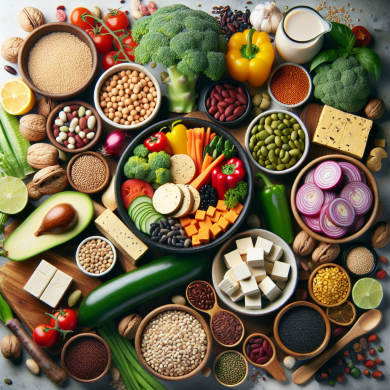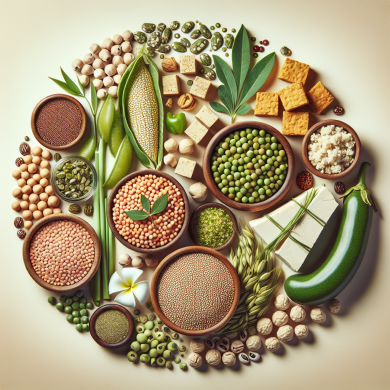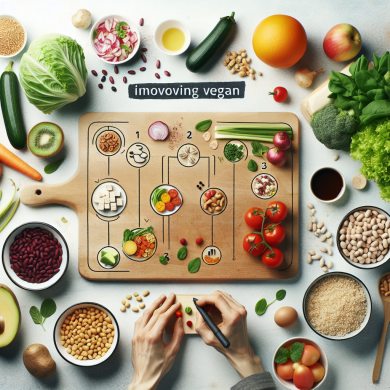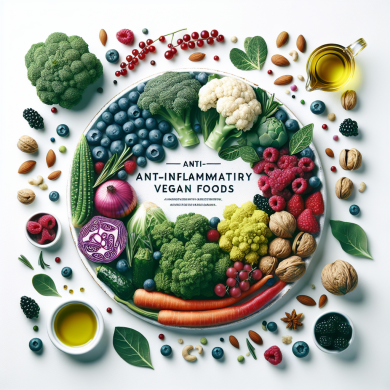Embrace Veganism: Smooth Transition Tips
Introduction
The decision to embrace veganism is not just about altering one’s diet; it is a holistic lifestyle change that can have profound impacts on health, the environment, and animal welfare. As the popularity of veganism continues to grow worldwide, more individuals are curious about how to make a smooth transition to this plant-based lifestyle. Whether motivated by ethical concerns, health benefits, or environmental sustainability, transitioning to veganism can be a rewarding journey. This article provides comprehensive tips and insights to help ease your transition into veganism, ensuring it is a positive and sustainable change.
Understanding Veganism
Veganism is more than just a diet; it is a lifestyle choice that seeks to exclude all forms of animal exploitation and cruelty, whether for food, clothing, or any other purpose. Unlike vegetarians who may consume dairy or eggs, vegans eliminate all animal products, including meat, dairy, eggs, and any derivatives thereof. This shift requires a thoughtful approach to ensure nutritional adequacy while embracing the ethical and environmental principles that underpin veganism.
Benefits of Veganism
Health Benefits
Adopting a vegan diet can lead to numerous health benefits, including lower risks of heart disease, hypertension, type 2 diabetes, and certain cancers. Plant-based diets are typically rich in essential nutrients such as fiber, vitamins, and antioxidants, and they tend to be lower in saturated fats and cholesterol. Many individuals experience improved digestion, increased energy levels, and better weight management upon transitioning to a vegan diet.
Environmental Impact
The environmental benefits of veganism are significant. Animal agriculture is a leading cause of deforestation, greenhouse gas emissions, and water pollution. By reducing or eliminating the consumption of animal products, individuals can significantly lower their carbon footprint. A plant-based diet requires fewer natural resources and contributes to the preservation of ecosystems and biodiversity.
Ethical Considerations
For many, the ethical implications of veganism are a driving force behind their decision. Choosing a vegan lifestyle aligns with principles of compassion and respect for all living beings. It is a powerful statement against the exploitation and suffering of animals in industries such as factory farming and animal testing.
Tips for a Smooth Transition to Veganism
Start Gradually
Transitioning to veganism does not have to be an overnight change. Gradually eliminating animal products from your diet can make the process more manageable. Start by incorporating more plant-based meals into your weekly routine, and slowly phase out meat, dairy, and eggs. This approach allows your palate to adjust and gives you time to explore new foods and recipes.
Educate Yourself
Knowledge is empowering. Take the time to educate yourself about vegan nutrition, cooking methods, and the ethical and environmental impacts of your food choices. There are numerous books, documentaries, and online resources available that provide valuable information and inspiration for new vegans.
Explore Plant-Based Alternatives
The availability of plant-based alternatives has increased dramatically in recent years. From almond milk to soy yogurt and from veggie burgers to dairy-free cheese, there are countless options to satisfy your cravings without compromising your vegan commitment. Experiment with different products to find the ones that suit your taste and nutritional needs.
Plan Balanced Meals
A well-planned vegan diet is key to ensuring you receive all the necessary nutrients. Focus on including a variety of fruits, vegetables, whole grains, legumes, nuts, and seeds in your diet. Pay special attention to protein sources such as lentils, chickpeas, tofu, and tempeh. Consider consulting a nutritionist to help plan balanced meals and ensure you’re meeting your dietary needs, especially for nutrients like vitamin B12, iron, and omega-3 fatty acids.
Connect with the Vegan Community
The support of a community can make the transition to veganism much smoother. Connect with other vegans through social media, local meetups, or online forums. Engaging with a community provides encouragement, recipe ideas, and a sense of belonging among like-minded individuals. Many cities now offer vegan festivals and events that celebrate plant-based living and provide a wealth of resources and information.
Be Prepared for Challenges
Transitioning to a vegan lifestyle can have its challenges, especially when dining out or attending social gatherings. Learn to navigate these situations by researching vegan-friendly restaurants, communicating your dietary preferences to hosts, and bringing your own vegan dishes to share. It’s important to be patient with yourself and others as you adapt to your new lifestyle.
Stay Positive and Patient
Embracing veganism is a personal journey, and it’s important to stay positive and patient throughout the process. Celebrate your progress and the positive impact you’re making. Remember that perfection is not the goal; every step towards reducing animal product consumption is a step in the right direction. Be kind to yourself if you encounter setbacks and recognize that change takes time.
Conclusion
Transitioning to veganism is a significant and commendable decision that can lead to a healthier lifestyle, a more sustainable planet, and a more compassionate world. By starting gradually, educating yourself, exploring plant-based alternatives, planning balanced meals, connecting with the vegan community, and remaining patient, you can make the transition to veganism smooth and fulfilling. Embrace the journey, and take pride in the positive contributions you are making to your health, the environment, and the welfare of animals.















Add comment